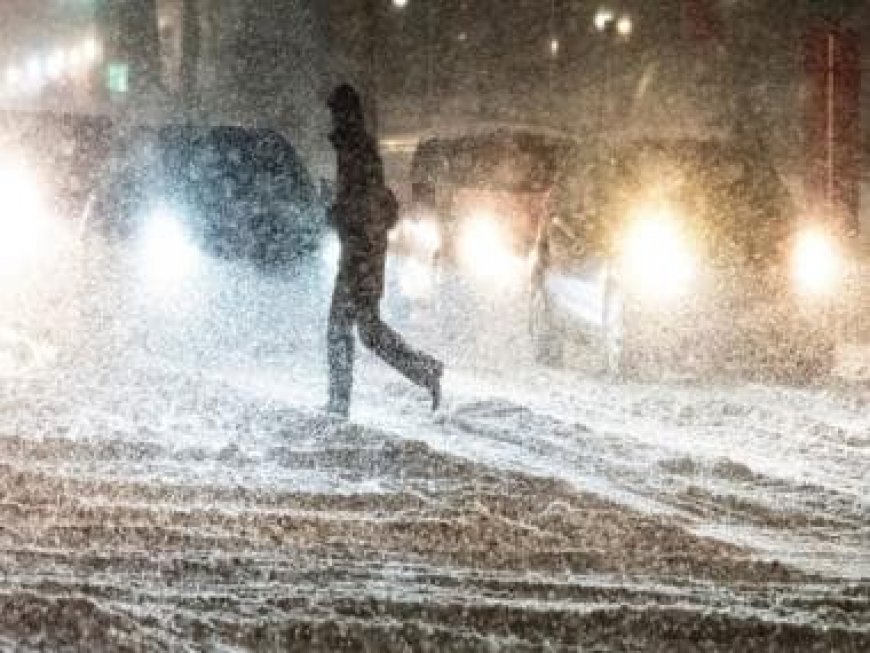Extreme cold grips Nordic countries, Sweden sees record cold as temperatures plunge below -40 Celsius
Extreme cold grips Nordic countries, Sweden sees record cold as temperatures plunge below -40 Celsius

Europe encountered significant weather contrasts on Wednesday, witnessing extreme cold and snowstorms that led to transportation disruptions and school closures in Scandinavia. Simultaneously, western Europe experienced strong winds and heavy rain, resulting in flooding and at least one death.
Temperatures plummeted below minus 40 degrees Celsius (minus 40 degrees Fahrenheit) in the Nordic region for the second consecutive day. Sweden reported its coldest January night in 25 years on Wednesday, registering a temperature of minus 43.6 degrees Celsius in the far north. This cold snap affected both Sweden and its neighbouring country, Finland.
“To put that into perspective, that is the lowest January temperature in Sweden since 1999,” Mattias Lind, meteorologist at Sweden’s national weather agency SMHI, told AFP. In January 1999, a temperature of minus 49 degrees Celsius (minus 56.2 Fahrenheit) was recorded in Sweden, which then tied the record set in 1951.
Lind said that Wednesday’s measurement was made at the Kvikkjokk-Arrenjarka station in Sweden’s far north.”It is the lowest temperature that has been recorded in this specific spot since measurements began” at the site in 1888, he said. Several other stations recorded temperatures of below minus 40C in Sweden’s northern parts.
Several instances of frozen water pipes were also reported, and Finnish broadcaster YLE said around 300 people in the city of Tampere were left without running water on Tuesday.
The cold front is expected to move south over the next few days, with residents of the Finnish capital Helsinki already seeing temperatures rise to minus 15C on Wednesday.
Extremely cold temperatures, snow and gale-force winds disrupted transportation throughout the Nordic region, with several bridges closed and some train and ferry services suspended. Several schools in Scandinavia were closed.
Police across most of Denmark urged motorists to avoid unnecessary trips as wind and snow battered the northern and western parts of the country.
Mild but wet and windy conditions prevailed further south, where a storm wreaked havoc in parts of western Europe.
In Britain, a driver died after a tree fell on his car in western England. Gloucestershire Police said the man died in the incident near the town of Kemble on Tuesday afternoon.
The storm, which has been named Henk by the official weather services of Britain, Ireland and the Netherlands, has caused power cuts, transport troubles, property damage and disruption across the U.K.
More than 300 flood warnings were in place across England and Wales on Wednesday, while 10,000 homes remained without power. A severe flood alert, meaning a danger to life, was announced for the River Nene in Northampton in central England. Several residents were evacuated from houseboats and caravans at the nearby Billing Aquadrome.
The U.K.’s rail network was hit by flooding and power cuts, with many operators reporting ongoing issues for the Wednesday morning commute to work.
The strongest gales in the U.K. were recorded on the Isle of Wight, just off the coast in southern England, where wind speeds reached 94 miles per hour (151 kilometers per hour).
In the Netherlands, police near the city of Eindhoven said strong winds may have played a role in the death of a 75-year-old man who fell off his bicycle late Tuesday as high winds lashed much of the country.
Parts of Germany were also grappling with flooding, which could be aggravated by more rain falling in the worst-affected northwestern state of Lower Saxony.
With inputs from agencies.
What's Your Reaction?



























































